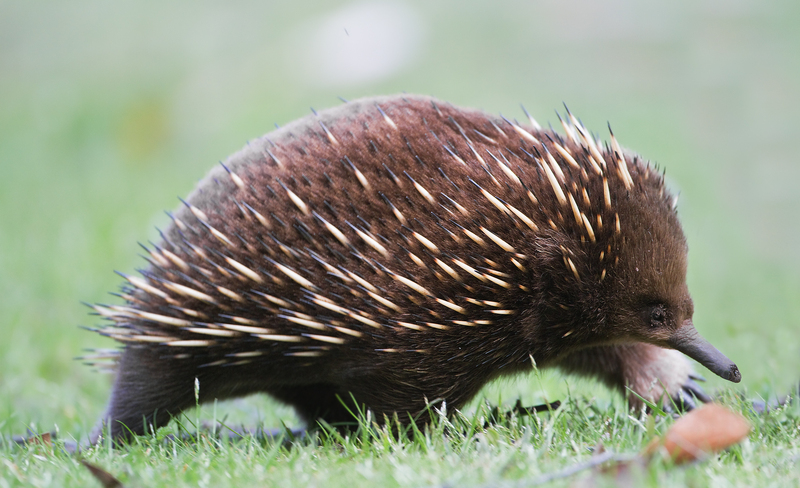|
| 질의: Monotremata | 결과: 14번째/17 | |
short-beaked echidna (Tachyglossus aculeatus setosus)
| 제목: | short-beaked echidna (Tachyglossus aculeatus setosus)
| | 올린이: | Wiki Photos (---@---.---)
| |

| 해상도: 2200x1341
파일크기: 1748059 Bytes
촬영일: 2010:11:21 16:57:10
사진기: Canon EOS 7D (Canon)
F number: f/4.0
Exposure: 1/250 sec
Focal Length: 500/1
등록시간: 2017:02:10 12:07:10
|
Description Short-beaked Echidna (Tachyglossus aculeatus), Mount Field National Park, Tasmania, Australia
Date 21 November 2010, 04:57:10
Author JJ Harrison https://commons.wikimedia.org/wiki/User:JJ_Harrison (jjharrison89@facebook.com)
Source: https://commons.wikimedia.org/wiki/File:Tachyglossus_aculeatus_side_on.jpg
The short-beaked echidna (Tachyglossus aculeatus) is one of four living species of echidna and the only member of the genus Tachyglossus. It is covered in fur and spines and has a distinctive snout and a specialized tongue, which it uses to catch its insect prey at a great speed. Like the other extant monotremes, the short-beaked echidna lays eggs; the monotremes are the only group of mammals to do so. The short-beaked echidna was first described by George Shaw in 1792. He named the species Myrmecophaga aculeata, thinking that it might be related to the giant anteater. Since Shaw first described the species, its name has undergone four revisions: from M. aculeata to Ornithorhynchus hystrix, Echidna hystrix, Echidna aculeata and finally, Tachyglossus aculeatus. The name Tachyglossus means "quick tongue", in reference to the speed with which the echidna uses its tongue to catch ants and termites, and aculeatus means "spiny" or "equipped with spines". Order: Monotremata, Family: Tachyglossidae, Genus: Tachyglossus, Species: Tachyglossus aculeatus (Shaw, 1792). |
^o^
동물그림창고 똑똑전화 누리집
^o^
|
|

